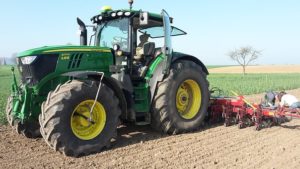Many people who make their livelihood from farming are doing it tough at the moment, with little to no rainfall received for months on end. The NSW Government has extended a lifeline to farming families for assistance in the form of a Drought Transport Fund. Available immediately, the assistance includes low-interest loans of up to $20,000 to cover 100 per cent of costs (GST exclusive) to transport stock, fodder, or water to and from drought-affected properties. The first two years of a seven year loan are also interest and repayment free. For more information, visit https://www.raa.nsw.gov.au/assistance/drought-transport-fund
Superannuation Clearing House
The Small Business Superannuation Clearing House (SBSCH) joined the ATO’s online services on 26 February. This is a free service that businesses with 19 or fewer employees (or SBEs) can use to comply with their super obligations. It is intended to streamline how businesses use the SBSCH and will also include extra functionality such as the ability to sort employee listings and payment by credit card.
Taking life for granted
Sometimes, we can take many things for granted – clean clothes, food on the table, access to education. Many farmers also take for granted the fact that they will receive finance approval to move the farming business forward based on their credit history. However, despite assets such as livestock, acreage and equipment, there is the flipside of loans for machinery, trade finance and nature’s unpredictability. An important factor is the credit risk profile which can show financial lenders the customer’s bankability. It is largely influenced by decisions made within the business, external economics in the industry and shifting policy. 
To find out more about assessing your credit risk profile, contact us on 6885 5594.
New superannuation rates and thresholds released
The ATO has published the key superannuation rates and t hresholds for the 2018/19 income year. As such, the Non-Concessional Contributions cap will remain at $100,000 (although transitional arrangements may apply), and the Concessional Contributions cap will remain at $25,000. The CGT cap amount will be $1,480,000 and the Division 293 tax threshold will be $250,000. The maximum super contribution base for superannuation guarantee purposes will be $54,030 per quarter. The maximum superannuation co-contribution entitlement for the 2018/19 income year will remain at $500 with the lower income threshold increasing to $37,697 and the higher income threshold increasing to $52,697.
hresholds for the 2018/19 income year. As such, the Non-Concessional Contributions cap will remain at $100,000 (although transitional arrangements may apply), and the Concessional Contributions cap will remain at $25,000. The CGT cap amount will be $1,480,000 and the Division 293 tax threshold will be $250,000. The maximum super contribution base for superannuation guarantee purposes will be $54,030 per quarter. The maximum superannuation co-contribution entitlement for the 2018/19 income year will remain at $500 with the lower income threshold increasing to $37,697 and the higher income threshold increasing to $52,697.
Inactive ABNs will be cancelled
The ATO has recently advised that, in an effort to maintain accurate data, the Australian Business Register (ABR) periodically checks its records for Australian Business Numbers (ABNs) and automatically cancels those that appear inactive.
Ultimately, a taxpayer’s ABN may be cancelled if they:
- have told the ATO they stopped their business activity
- declared no business income in the last two years
- have not lodged a BAS or an income tax return in more than two years
To avoid cancellation, the ATO has reminded taxpayers that they need to bring their lodgements up to date and have reminded sole traders that regardless of their income, they need to lodge the individual tax return with the supplementary section, as well as the business and professional items schedule.
Top tips for property investor success
BMT Tax Depreciation has shared its top three tips for property investors looking to optimise their property portfolios this year in light of changing market conditions.
BMT has worked with more than half a million Australian property investors to help them to uncover legitimate tax deductions for the wear, tear, and ageing of their investment properties.
The first suggestion for investors is to assess the debt situation in their property portfolios to ensure it is making the most of all the different mortgage products on the market and the current low interest rate climate.
BMT’s second tip for investors is to review whether they are correctly pricing their rental property to attract or hold good tenants.
The third tip is to consult depreciation and tax experts to ensure that all legitimate property tax deductions are being claimed in light of changes to depreciation rules that were passed through Parliament last year.
The new changes mean property investors can no longer claim deductions for plant and equipment assets such as air conditioning units, solar panels or carpet in second-hand residential properties where contracts were exchanged after 7:30pm on May 9, 2017. If you need advice about property investment, we are happy to help. Call 6885 5594 for more information.



